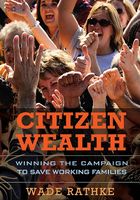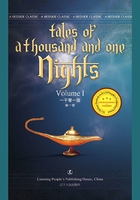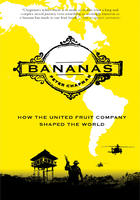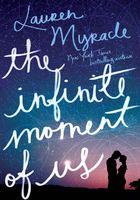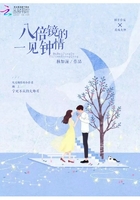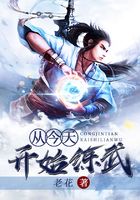My village of Nengai lay forty river miles west of Angoram. As the crow flies it would have been half that, but the Sepik, the longest river in New Guinea, is flamboyantly serpentine, the Amazon of the South Pacific, with a tendency to meander to such extremes that it has created, I learned a decade later under very different circumstances, over fifteen hundred oxbow lakes, places where the loops bent around so far they broke off. But when you are in a dugout canoe at night, even if it is motorized, you are not cognizant of the inefficient zig and zag of your route. You simply feel the river bend one way and then eventually another. You get used to the bugs in your eyes and mouth and the shiny rucked bulges of crocs and the thrash and bustle of thousands of nocturnal creatures gorging themselves while their predators sleep. You do not feel the extra, unnecessary twenty miles. If anything, you wish the trip were longer.
The thin moon gave the river a thin silver skin. As I had hoped, Nell nestled in among their bags and looked comfortable. I felt relieved when her eyes shut, as if she were my own croupy child who needed rest, and I puzzled over this feeling as Fen and I talked. We spoke not about our work but about Cambridge, where he'd been for a year while I was off with the Baining, and about Sydney, where we'd first met. We talked about football and Prime Minister MacDonald and India. The last I had heard, Gandhi had begun another hunger strike, but neither of us knew how it had ended. History hung suspended for months. I took solace in the not knowing.
After an hour or so of almost complete darkness on both banks, we came round a bend and saw fires and the flashes of festooned bodies all along a beach on the southern shore. It was the Olimbi village of Kamindimimbut, in the midst of a celebration. The smell of roasted boar reached us, and the hard drumming thudded in our chests.
It's hard to believe, as I write this account, that the next World War was only six years away from that night, or that in nine years the Japanese would take control of the Sepik and the whole of the New Guinea Territory from the Australians, or that I would let the United States government shake me down for every bit of knowledge I had about the area. Would Fen or Nell have done the same? Anthropological contribution, they called it in the OSS. A generous epithet for scientific prostitution.
I led a rescue operation up the Sepik to this village at the end of '42, and afterward every man, woman, and child of Kamindimimbut was killed by the Japanese when they learned a few Olimbi men had helped us find the three captured American agents being held nearby. Over three hundred people slaughtered solely because I knew which cluster of raised houses, which strip of sand, was theirs.
'What do you do about women then, Bankson?' Fen said quite out of the blue, after we'd passed Kamindimimbut.
I laughed. 'That's a bit personal for our first canoe trip, isn't it?'
'Just wondering if you've gone Malinowski's route. Sayers visited the Trobriands last year and said there were quite a number of suspiciously tan-colored adolescents walking about.'
'Do you believe it?'
'Have you seen the man in action? Nell and I picked him up at the station in New York and the only thing he said to me was "I need a martini in my hand and a girl in my bed." Seriously, mate, it's rough alone. I don't think I could do it again.'
'I'll take a partner of some sort or other next time. More efficient, too, by half.'
'Not sure I'd go that far.' His spent cigarette made a brief orange arc into the river. I slowed for him to light another, then sped up again.
Sometimes at night it seemed to me that my boat was not being pushed by the engine but that boat and engine both were being pulled by the river itself, the ripples of wake just a design, like a stage set moving along with us.
'Sometimes I wish I'd gone to sea,' I said, perhaps simply for the luxury of being able to speak a passing thought aloud to someone who would understand what I meant.
'Do you? Why's that?'
'I think I'm better on water than land. Better in my skin, as the French say.'
'The ship captains I've met are tossers.'
'It would be nice to do a job that wasn't a big invisible knot to untangle, wouldn't it?'
He didn't answer, but I wasn't bothered. I was flattered that we'd got to this stage already, that our minds could wander without apology. We passed through a long swath of fireflies, thousands of them flashing all around us, and it felt like soaring through stars.
The dark shapes on land became increasingly familiar: the tall narrow blackboard tree I called Big Ben, the jut of blueschist rock, the high mud bank of the most western Kiona hamlet. I must have slowed for Fen said, 'Are we nearly there?'
'Mile or two more.'
'Nell,' he said in a regular voice, not so much a question as a test. Satisfied she was still asleep he leaned over and said to me quietly, 'Do the Kiona have a sacred object, removed from the village, something that they feed and protect?'
He'd already asked me many questions along these lines in Angoram. 'They have sacred objects, certainly-instruments and masks and skulls of old warriors.'
'That are kept in ceremonial houses?'
'Yes.'
'I mean something bigger. Kept apart. Something they might not have told you about, but you sense exists.'
He was suggesting that after nearly two years they were withholding some vital aspect of their society from me. I assured him that I had been shown every totemic object in their possession.
'They told me theirs was a descendant of a Kiona one.'
'The Mumbanyo told you this? About what?'
'Do me a favor and ask them again. About a flute. One that's sometimes kept in isolation and has to be fed.'
'Fed?'
'Could you ask while I'm there? Your informant might not tell you the truth, but at least I'll have a look at his reaction.'
'Did you see it?' I asked.
'I only found out about it a few days before we left.'
'And you saw it?'
'They sort of presented it to me.'
'As a gift?'
'Yes, I think so. As a gift. But then this other clan-there were two rival clans in our village-took it back before I got a full look at the thing. I wanted to convince Nell to stay longer, but there is no rerouting her once she puts her mind to something.'
'Why did she want to leave?'
'Who knows. They didn't fit her thesis statement. And she calls the shots. We're on her grant money. Will you ask your man for me? About a sacred flute?'
'I've already harassed them hundreds of times about such things, but all right.'
'Thanks, mate. Just to see his face, really. See what it reveals.'
My beach appeared around the bend.
'Do you still have the butterfly net?' he said.
'What?'
'Haddon gave it to you in Sydney. Remember? Made me jealous.'
But I had no recollection of it.
I cut the engine and paddled in so as not to wake the village.
This time Fen shook her. 'Nell. We're here. We've reached the famous Kiona.'
'Hush. Let's not wake them,' she whispered. 'Lest we get shot by the arrows of the Great Warriors of the Sepik.'
'Princes,' Fen said. 'Princes of the Sepik.'
My house stood apart from the rest, and hadn't been lived in for many years. It was built around a rainbow gum tree, which came up through the floor and went out the roof. Many Kiona had come to believe it was a spirit tree, a place where their dead relatives gathered and made their plans, and some kept their distance, making a wide curve around my house when they passed by. They had offered to build me a house closer to the center of the village, but I had heard stories of anthropologists waiting months for their houses to be finished and I had been eager to settle in. I worried that Nell would have difficulty with my ladder, which was steep and nothing more than a wide pole with shallow notches for steps, but she climbed up, torch in hand, with ease. She didn't notice the tree until she was inside and the flame lit the room. I heard her let out a big American 'Wow.'
Fen and I hauled up their duffels, and I lit my three oil lamps to make the place seem more spacious. The gum tree took up a good bit of room. Nell stroked it. Its bark had shed and the trunk was smooth and streaked with orange and bright green and indigo. It wouldn't have been the first rainbow gum she'd encountered, but it was a striking specimen. She ran her palm down a swath of blue. I had the odd feeling that they were communicating, as if I had just introduced her to an old friend and they were already getting on well. For the truth is I had stroked that tree many a time, spoken to it, sobbed against it. I busied myself, gathering my medicines and looking for my whiskey, because I was tired and a bit raw from the long night and long ride, and I could not be certain I wouldn't well up right then if she asked me a single question about my tree.
'Ah, just what I was dreaming of,' Fen said when he peered into the tin cup I handed him.
The two of us sat on the little sofas I'd made from bark cloth and kapok fiber while Nell wandered about. My body felt like it was still skimming across the water.
'Don't snoop, Nellie,' he called over his shoulder. And then to me: 'Americans make such good anthropologists because they're so bloody rude.'
'You're admitting I'm a good anthropologist?' she said from my workroom.
'I'm saying you're a nosy parker.'
She was bent over my desk, not touching anything, but looking closely. I could see there was a sheet of paper in the typewriter, but I couldn't remember what it said.
'Those wounds of hers need treating.'
Fen nodded.
'I've never seen how anyone else works in the field,' she said.
'I guess I don't count,' Fen said.
'Is that mango leaves? You have a question here about mango leaves.'
'And now she's going to solve your problem, having been here a full five minutes.'
I feigned confusion and joined her in the workroom.
She was looking at the great mess of notebooks and loose papers and carbons.
'This makes me miss the work.'
'It's only been a few days, hasn't it?'
'I never settled in with the Mumbanyo like this.' She looked at my clutter of papers as if it had value, as if she were certain something substantial would come out of it somehow.
I saw the note she'd been referring to.
mgo lvs again on grv. ??
I explained that I'd been to the burial of a boy in another Kiona hamlet and mango leaves were carefully placed over the grave.
'You'd seen the pattern before?'
'No, a different leaf pattern each time. But I can't find the pattern to the patterns.'
'Age, sex, social status, mode of death, shape of the moon, position of the stars, birth order, role in family.' She stopped to take a breath. She looked like she had about forty-five other ideas for me.
'No. They keep telling me there is no pattern.'
'Perhaps there isn't.'
'The same old woman quietly gives the instructions.'
'And when you ask her directly?'
'Leave it alone, Nell,' Fen said from the sofa. 'He's been here twice the time you have, for Christ's sake.'
'It's all right. I could use some help. She's the one woman in the area who won't speak to me.'
'Not even indirectly, through a relative?'
'A white man killed her son.'
'Do you know the circumstances?'
'There had been some fighting downriver and the kiaps came in for a roundup. They calaboosed half the village. This young man had been visiting his cousin-nothing to do with the fight-resisted arrest, and died from a blow to the head.'
'Have you made amends?'
'What?'
'Have you made offerings to this woman for the mistake of your kin?'
'Those pigs are hardly my kin.'
'To that woman they are. They don't think there are more than twelve of us in the whole world.'
'I've given her salt and matches and tried to charm her in every way I can think of.'
'Is there a formal amends ritual?'
'I don't know.'
She looked exasperated with me. 'You can't afford to have someone so set against you. Everyone will know it and measure their response to you against it. She's skewing all your results.'
Fen cackled behind us. 'Didn't take you long this time. I think that might be a record. Shall we make a pyre of all his notes?'
All her face could muster was a pale peach flush. 'I'm sorry, I-' She put her hand out halfway to me.
'I'm sure you're right. I should find out how to make amends.'
She didn't seem to believe my tone of voice or the expression on my face, and apologized again. But I wasn't put out by what she'd said. Quite the opposite. I was eager, desperate for more. Ideas, suggestions, criticism of my approach. Fen might have had too much of it, but I had had too little.
'Let's see about treating those battle wounds.'
I went to the back of the house to fetch the medicines I'd collected.
I heard Fen say, 'Well, you gave him a right sheep--dipping, didn't you?'
I didn't hear Nell respond. When I came back, she was sitting beside him and her face had returned to its eerie yellow.
Fen made no move to do it himself, so I asked for her left hand first, the one with the gash across the palm. I couldn't understand how they'd been so cavalier about these cuts. Sepsis was one of the greatest risks in the field.
Fen must have seen something in my face. 'Our medicine disappears in a week,' he said. 'Every time we get a shipment Nell uses it up on the scrapes and sores of all her kiddies.'
I doused the cut in iodine, swabbed it with boracic ointment, and wrapped it in a cotton bandage. Her hand at first was weightless in mine but soon it gave in and grew heavy.
I confess, I worked slowly. After the hand I addressed the lesions, two on her arm, one on her neck, and-she rolled up her trouser leg-another on her right shin. They seemed to me to be small tropical ulcers, not yaws. I suspected there were more, but I could hardly ask her to remove her clothing. I gave her aspirin for her fever. Beside her Fen watched until his eyes closed.
'You must let me apologize for what I said earlier,' she said, 'about the leaves.'
'Formal amends would require an oath that you two don't run off to the Aborigines.'
She raised her bandaged hand. 'I swear.'
'Now, tell me what happened with the Mumbanyo. Unless you want to sleep.'
'I got my rest in the canoe. Thank you for the tending. Everything feels better.' She took her first sip of whiskey. 'Do you know of them, the Mumbanyo?'
'Never heard of them.'
'Fen will give you a very different account than mine.' Her wounds glistened with the ointment I had put on them.
'Give me yours.'
She seemed daunted by the question, as if I'd asked her to write a monograph about them on the spot. Just when I thought she'd say she was too tired, she launched in. They were an affluent tribe, unlike the Anapa, who struggled to get enough to eat each day. The Mumbanyo's tributary was full of fish, and they grew all the tobacco in the area. They were flush with food and shell money. But they were full of fear and aggression, bordering on paranoia, and terrified the region into submission with their impulsive threats.
'I've never had an aversion to a people before. Almost a physical repulsion. I'm not a neophyte to the region. I've seen deaths, sacrifices, scarrings that end badly. I'm not-' She looked at me wildly. 'They kill their firstborn. They kill all their twins. Not in a ritual, not with emotion and ceremony. They just toss them in the river. Toss them in the bush. And the children they keep, they barely tend to. They carry them under their arm like a newspaper or plunk them in stiff baskets and close the lid, and when the baby cries they scratch the basket. That's their most tender gesture, the scratching on the outside of the basket. When the girls are seven or eight, their fathers start to have sex with them. No surprise they grow up distrustful, vindictive, and murderous. And Fen-'
'He was intrigued?'
'Yes. Enamored. Utterly compelled. I had to get him out of there.' She tried to laugh. 'They kept telling us they were on their best behavior for us, but that it wouldn't last forever. They were blaming everything that went wrong on the lack of bloodshed. We left seven months early. Maybe you noticed-there's sort of a stench of failure about us.'
'I hadn't caught that, no.' I would have liked to tell her about my own sense of failure, but it felt too vast to explain. Instead I looked at her shoes, leather schoolgirl lace-ups nearly as worn out as my own. I couldn't be sure she had all her toes in there. Toes were the first things to get eaten away by those tropical ulcers.
'You have a letter to your mother in the typewriter,' she said.
'I often do. Dear Mum, leave me alone. Love, Andrew.'
'Andrew.'
'Yes.'
'No one ever calls you that.'
'No one. Except my mum.' I felt her waiting for more. 'She would like me to be in a laboratory in Cambridge. Threatens to cut me off in every letter. And I can't do this work without her support. We don't have the kinds of grants you have in America. Nor have I written a best-selling book, or any book for that matter.' She'd ask next about the rest of the family, so I thought I should head her off. 'Everyone else is dead so she seems to have a great deal of energy for me.'
'Who is everybody else?'
'My father and brothers.'
'How?'
There was an American anthropologist for you. No delicate changing of the subject, no You have my deepest condolences or even How ghastly for you, but just a no-nonsense, straight-on How the heck did that happen?
'John in the war. Martin in an accident six years later. And my father of heart failure, most likely due to the sad fact that runty old me was all that was left of his legacy.'
'Hardly runty.'
'Runty in the brain. My brothers were geniuses in their own ways.'
'Everyone becomes a genius when they die young. What were they smart at?'
I told her about John and his boots and pail, the rare caterpillar, the fossils in the trenches. And about Martin. 'My father thought it showed inordinate hubris for Martin to try and write a poem.'
'Fen told me your father coined the word genetics.'
'He didn't mean to. He wanted to teach a course on Mendel and what was then called gene plasma. He felt it needed a more dignified word than plasma.'
'Did he want you to continue where he left off?'
'He wasn't capable of imagining anything else for us. It was all that mattered to him. He believed it was our duty.'
'When did he die?'
'Nine years this winter.'
'So he knew you'd transgressed.'
'He knew I was reading ethnography with Haddon.'
'He thought it was a soft science?'
'It wasn't science at all. Not to him.' I could hear my father clearly. Pure nonsense.
'And your mother is of the same persuasion?'
'Stalin to his Lenin. I am nearly thirty but entirely in her thrall. My father left it that she hold the purse strings.'
'Well, you've managed to build your jail cell at a good distance from her.'
I felt I should encourage her to sleep. You need rest, I should have said, but did not. 'It wasn't an accident. With Martin. He killed himself.'
'Why?'
'He was in love with a girl and she didn't want him. He'd gone to her flat with a love poem he'd written and she wouldn't read it. So he went and stood under the statue of Anteros at Piccadilly Circus and shot himself. I have the poem. It's not his best. But the bloodstains give it a little dignity.'
'How old were you?'
'Eighteen.'
'I thought it was Eros at Piccadilly Circus.' She plucked at a pencil on my desk. For a second I thought she was going to start taking notes.
'Many people do. But it's his twin brother, the avenger of unrequited love. Poetic to the last.'
Most women like to fuss around a wound of your past, pick at the thin scab, comfort you after they'd made it sting. Not Nell.
'Do you have a favorite part of all this?' she asked.
'All what?' I said.
'This work.'
Favorite part? There was little at this point that didn't make me want to run with my stones straight back into the river. I shook my head. 'You first.'
She looked surprised, as if she hadn't expected the question to come back at her. She narrowed her grey eyes. 'It's that moment about two months in, when you think you've finally got a handle on the place. Suddenly it feels within your grasp. It's a delusion-you've only been there eight weeks-and it's followed by the complete despair of ever understanding anything. But at that moment the place feels entirely yours. It's the briefest, purest euphoria.'
'Bloody hell.' I laughed.
'You don't get that?'
'Christ, no. A good day for me is when no little boy steals my underwear, pokes it through with sticks, and brings it back stuffed with rats.'
I asked her if she believed you could ever truly understand another culture. I told her the longer I stayed, the more asinine the attempt seemed, and that what I'd become more interested in is how we believed we could be objective in any way at all, we who each came in with our own personal definitions of kindness, strength, masculinity, femininity, God, civilization, right and wrong.
She told me I sounded as skeptical as my father. She said no one had more than one perspective, not even in his so-called hard sciences. We're always, in everything we do in this world, she said, limited by subjectivity. But our perspective can have an enormous wingspan, if we give it the freedom to unfurl. Look at Malinowski, she said. Look at Boas. They defined their cultures as they saw them, as they understood the natives' point of view. The key is, she said, to disengage yourself from all your ideas about what is 'natural.'
'Even if I manage that, the next person who comes here will tell a different story about the Kiona.'
'No doubt.'
'Then what is the point?' I said.
'This is no different from the laboratory. What's the point of anyone's search for answers? The truth you find will always be replaced by someone else's. Someday even Darwin will look like a quaint Ptolemy who saw what he could see but no more.'
'I'm a little mired at the moment.' I wiped my face with my hands, healthy hands-my body thrived in the tropics; it was my mind that threatened to give out on me. 'You don't struggle with these questions?'
'No. But I've always thought my opinion was the right one. It's a small flaw I have.'
'An American flaw.'
'Maybe. But Fen has it, too.'
'A flaw of the colonies then. Is that why you got into this line of work, so you could have your say and people would have to travel thousands of miles and write their own book if they wanted to refute you?'
She smiled broadly.
'What is it?' I asked.
'This is the second time tonight I've remembered this tiny thing I haven't thought of for years.'
'What's that?'
'My first report card. I wasn't sent to school until I was nine, and my teacher's comment at the end of the first term was: "Elinor has an overenthusiasm for her own ideas and a voluble dearth of enthusiasm for those of others, most especially her teacher's."'
I laughed. 'When was the first time you thought of it?'
'When we first arrived, and I was poking around your desk. All your notes and papers and books-I felt a rush of ideas, which is something I haven't felt in a while. I thought maybe it was gone for good. You look like you don't believe me.'
'I believe you. I'm just terrified by what overenthusiasm might look like. If what I am seeing now is underenthusiasm.'
'If you're anything like Fen, you won't like it much.'
I guessed I wasn't anything like Fen.
She looked at her husband, who was in a deep concentrated sleep beside her, lips pursed and brow wrinkled, as if resisting being fed.
'How did the two of you meet?'
'On a ship. After my first field trip.'
'Shipboard romance.' It came out almost as a question, as if I were asking if it had been too hasty, and I quickly added, weakly, 'The best kind.'
'Yes. It was very sudden. I was coming back from the Solomons. A group of Canadian tourists on the boat was making a great fuss about me having studied the natives unchaperoned and I was full of stories for them and Fen sort of skulked around in the shadows for a few days. I didn't know who he was--nobody did-but he was the only man my age and he wouldn't dance with me. And then out of the blue, he came up to me at breakfast and asked what I had dreamed the night before. I learned he'd been studying the dreams of a tribe called the Dobu, and he was heading to London to teach. Honestly it was such a surprise, that this burly black-haired Aussie was an anthropologist like me. We were both coming back from our first field trips and we had a lot to talk about. He was so full of energy and humor. The Dobu are all sorcerers so Fen kept putting spells and hexes on people, and we'd hide and see if they worked. We were like little kids, giddy at having found a friend among all these stuffy grown-ups. And Fen loves to live with an us-against-the-world mentality that is very alluring at first. All the other passengers fell away. We talked and laughed our way to Marseille. Two and a half months. You really think you know a person after that kind of time together.' She was looking somewhere over my left shoulder. She didn't seem to notice she'd stopped talking. I wondered if she'd fallen asleep with her eyes open. Then they drifted back. 'He went on to London to teach for a semester. I went home to New York to write my book. We were married a year later and came here.'
She was exhausted.
'Let me sort out a bed for you,' I said, getting up.
I went into the small mosquito room I slept in. The sheets on the mat hadn't been changed for weeks and my clothes were strewn everywhere. I shoved everything in the crate I used for a bedside table and spread clean sheets on the mat in the best version of a real bed that I could manage. I had a nice pillow, one from my mother's house, but the humidity had stuck the feathers together so it felt more like clay than down.
I heard laughing behind me. She was standing on the other side of the netting, observing my attempts to fluff it up. 'Please don't worry about that. But point me in the direction of the latrine, if you have one.'
I took her out to it. You had to have them built a good distance from the house in the tropics. I'd learned that the hard way with the Baining. The sky had lightened and we didn't need a torch. I wasn't sure what state the latrine would be in, having never expected a woman to use it, and I planned to have a look before I let her in, but she reached it first and jumped in before I could stop her.
Now I was in a predicament. I felt I should stay close by, in case there was a snake or a bat, both of which I had encountered in that small space before, as well as a flying fox and an enchanting red and gold bird Teket thought I had imagined. But I also felt one needed privacy to perform one's duties. Before I could decide the proper distance at which to stand, her water began to flow at an astonishing rate and kept on for a great while. Then she was out the door and back on the path with me, limping along but with a new burst of energy.
When we returned, Fen had shifted over to one side and was releasing his breath in great suspended puffs, like a surfacing whale. It felt to me like a terribly intimate noise and I wished I'd gotten him to the bedroom before he'd entered such a deep sleep. I thought Nell would go to bed then, but she followed me to the back of the house, where I was planning to make a cup of tea and think of where I could take them to find a decent tribe.
She asked me what the last piece of the puzzle here was, and I told her about a Kiona ceremony called Wai I'd seen only once, when I first arrived, and my nascent thoughts about the transvestitism involved. She asked if I'd ever tried my ideas out on them.
I laughed. '"I say, Nmebito, did you know that by embracing your feminine side that night you have provided an equilibrium for this community that the overdeveloped masculine aggression of your culture often threatens?" Is that what you mean?'
'Maybe something more like: Do you think men becoming women and women becoming men brings joy and peace?'
'But they're not reflective in that way.'
'Of course they are. They reflect on when they fished the day before-what it brought them, where they might choose to go the next day. They reflect on their children, their spouses, their siblings, their debts, their promises.'
'But I see no evidence of the Kiona analyzing their own rituals in search of meaning,' I said.
'I'm sure some do. It's just that they've been born into a culture that makes no place for it, so the impulse weakens, like an unused muscle. You need to help them exercise it.'
'Is this what you do?'
'Not all in one day, but yes. The meaning is inside them, not inside you. You just have to pull it out.'
'You're assuming analytical abilities that I'm not sure they possess.'
'They are human, with fully functioning human minds. If I didn't believe they shared my humanity entirely, I wouldn't be here.' She had real color in her cheeks now. 'I'm not interested in zoology.'
Observe observe observe, I'd always been instructed. Nothing about sharing your findings or eliciting analysis from the subjects themselves. 'Wouldn't this approach create a self-consciousness in the subject that would then alter the results?'
'I think observing without sharing the observations creates an atmosphere of extreme artificiality. They don't understand why you're there. If you are open with them, everybody becomes more relaxed and honest.'
She was looking like a cuscus again, her face so alert and those wide grey eyes slightly unfocused. 'Can we sit and drink that tea?'
When we did she said, 'Freud said that primitives are like Western children. I don't believe that for a second, but most anthropologists don't blink an eye at it, so we'll let it stand for the sake of my argument, which is: Every child seeks meaning. When I was four I remember asking my quite pregnant mother: What's the point of all this? Of all what? she asked. Of all this life. I remember how she looked at me and I felt like I'd said something very bad. She came and sat beside me at the table and told me I'd just asked a very big question, and that I wouldn't be able to answer it until I was an old, old woman. But she was wrong. Because she had that baby, and when she brought her home I knew I'd found the point. Her name was Katie but everyone called her Nell's Baby. She was my baby. I did everything for her: fed her, changed her, dressed her, put her to sleep. And then when she was nine months old, she got sick. I was sent to my aunt's in New Jersey and when I came back she was gone. They didn't even let me say goodbye. I couldn't even touch her or hold her. She was gone like a rug or a chair. I feel like I got most of life's lessons before I turned six. For me, other people are the point, but other people can disappear. I guess I don't have to tell you that.'
'The Kiona give everyone a sacred name, a secret spirit name to use in the world beyond this one. I gave John and Martin new names and I find it helps a bit. Brings them closer somehow.' My heart was suddenly beating hard. 'Was Katie your only sibling?'
'No. My mother had a boy two years later. Michael. But I couldn't go near him. I said mean things about him. I think that's why they finally sent me to school. To get me out of poor Michael's hair.'
'And what do you make of him now?'
'Not much. He's quite angry with me at the moment, because I haven't changed my name to Fen's, and that has been reported in the papers in several cities.'
I'd heard that, too, somewhere.
'Were you close to your brothers?' she asked.
'Yes, but I didn't know it until they died.' I felt my throat tighten a bit, but I pushed the words through. 'When John died I was twelve and I thought, if only it had been Martin. I thought I could have handled Martin better because he was so much more familiar and irritating to me. John was like a beloved uncle who came home and took me frog hunting and bought me jelly buttons. Martin taunted and mimicked me. And then six years after John, Martin did die and I felt like-' And then my throat closed entirely and I couldn't force it open. She stared at me and nodded into the silence between us, as if I were still talking and making perfect sense.

